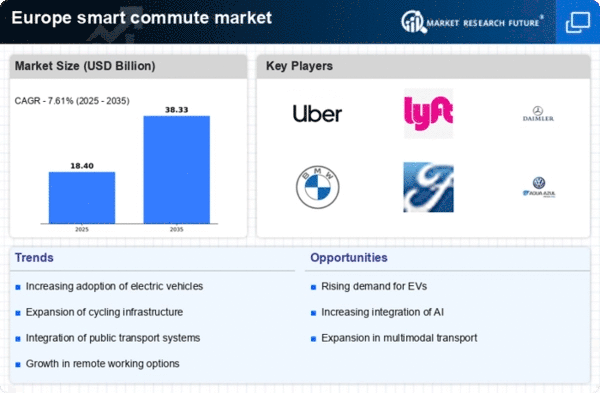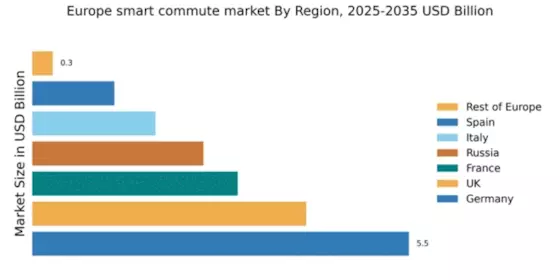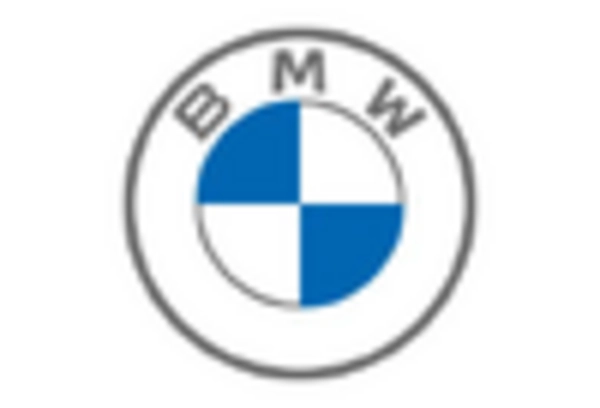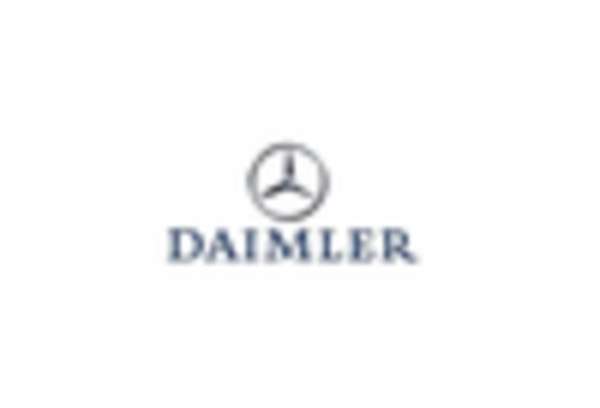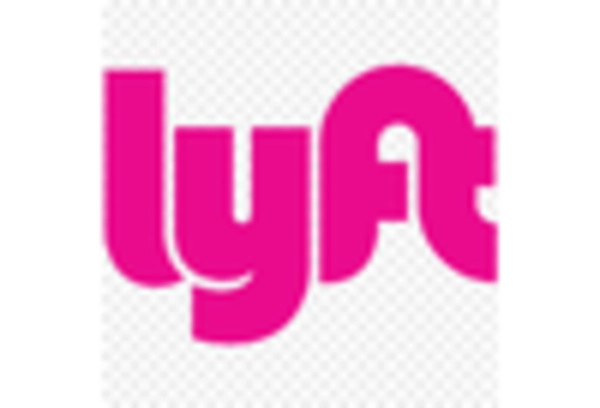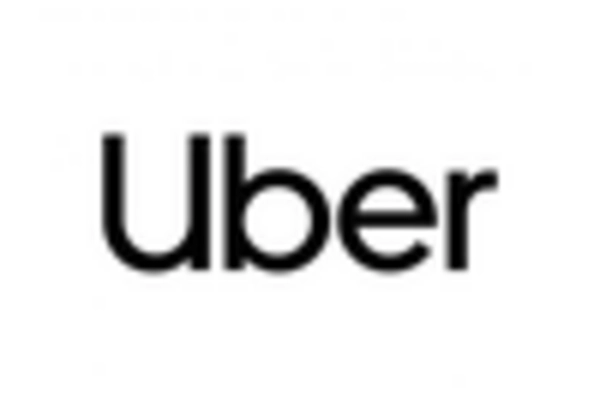Urbanization and Population Growth
Urbanization trends in Europe are driving the demand for smart commuting solutions. As cities expand and populations increase, the need for efficient transportation systems becomes paramount. According to recent data, over 75% of the European population resides in urban areas, leading to increased traffic congestion and pollution. This scenario necessitates the development of smart commute market solutions that can alleviate these issues. The smart commute market is responding by integrating technologies that optimize traffic flow and enhance public transportation systems. It is estimated that the urban population in Europe will grow by 10% by 2030, further intensifying the need for innovative commuting solutions that can accommodate this growth.
Government Initiatives and Policies
The smart commute market in Europe is significantly influenced by government initiatives aimed at promoting sustainable transportation. Various European governments have implemented policies that encourage the adoption of electric vehicles (EVs) and the development of smart infrastructure. For instance, the European Commission has set ambitious targets to reduce greenhouse gas emissions by at least 55% by 2030. This regulatory framework not only incentivizes the use of EVs but also fosters investments in smart commuting solutions. As a result, the market is projected to grow, with an estimated increase of 20% in smart commute technologies by 2027. Such initiatives are crucial for the smart commute market, as they create a conducive environment for innovation and adoption of advanced commuting solutions.
Technological Advancements in Mobility
Technological advancements are reshaping the smart commute market in Europe, with innovations such as artificial intelligence (AI), big data, and the Internet of Things (IoT) playing pivotal roles. These technologies enable real-time data analysis and improve the efficiency of transportation systems. For example, smart traffic management systems can reduce congestion by up to 30%, enhancing the overall commuting experience. The integration of these technologies is expected to propel the smart commute market forward, with a projected market growth rate of 15% annually over the next five years. As cities adopt these technologies, the potential for improved mobility solutions becomes increasingly apparent, indicating a transformative shift in how people commute.
Investment in Infrastructure Development
Investment in infrastructure development is crucial for the growth of the smart commute market in Europe. Governments and private entities are channeling funds into enhancing transportation networks, including the construction of dedicated bike lanes, electric vehicle charging stations, and smart public transit systems. Recent reports suggest that infrastructure investments in Europe could reach €100 billion by 2030, significantly impacting the smart commute market. This influx of capital is expected to facilitate the deployment of advanced technologies and improve the overall commuting experience. As infrastructure continues to evolve, the smart commute market is likely to witness a surge in adoption rates, with an anticipated growth of 18% in the next five years.
Environmental Awareness and Consumer Preferences
Growing environmental awareness among consumers is a key driver of the smart commute market in Europe. As individuals become more conscious of their carbon footprints, there is a noticeable shift towards sustainable commuting options. Surveys indicate that approximately 60% of European commuters are willing to switch to eco-friendly transportation methods, such as electric bikes or public transit, if provided with the right incentives. This shift in consumer preferences is prompting companies within the smart commute market to innovate and offer greener alternatives. The increasing demand for sustainable commuting solutions is likely to result in a market expansion of around 25% by 2028, as businesses align their offerings with consumer values.


